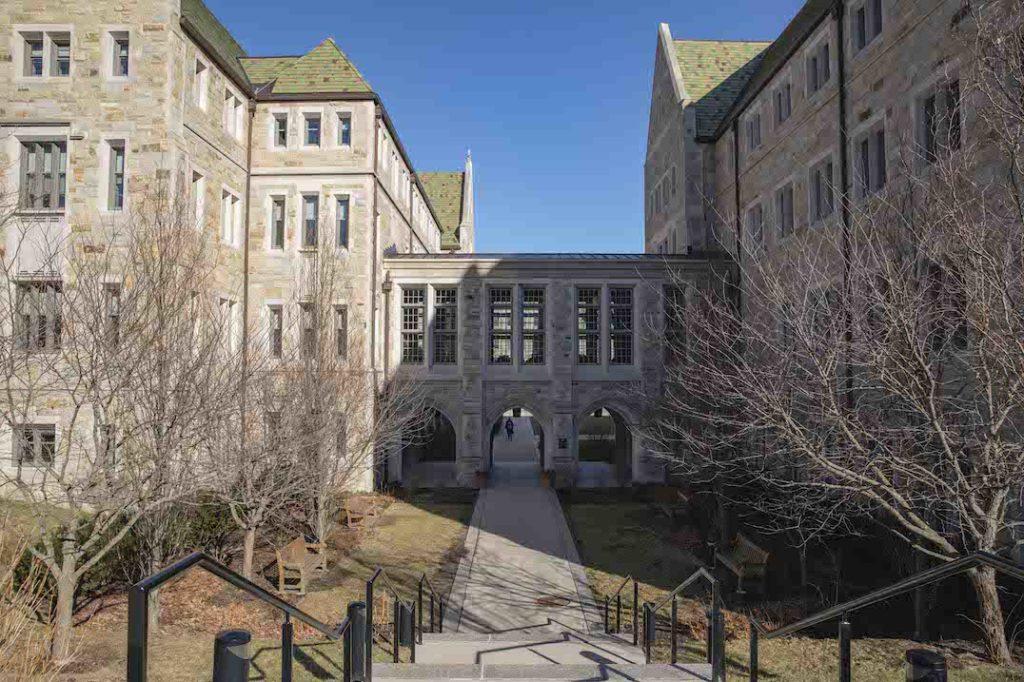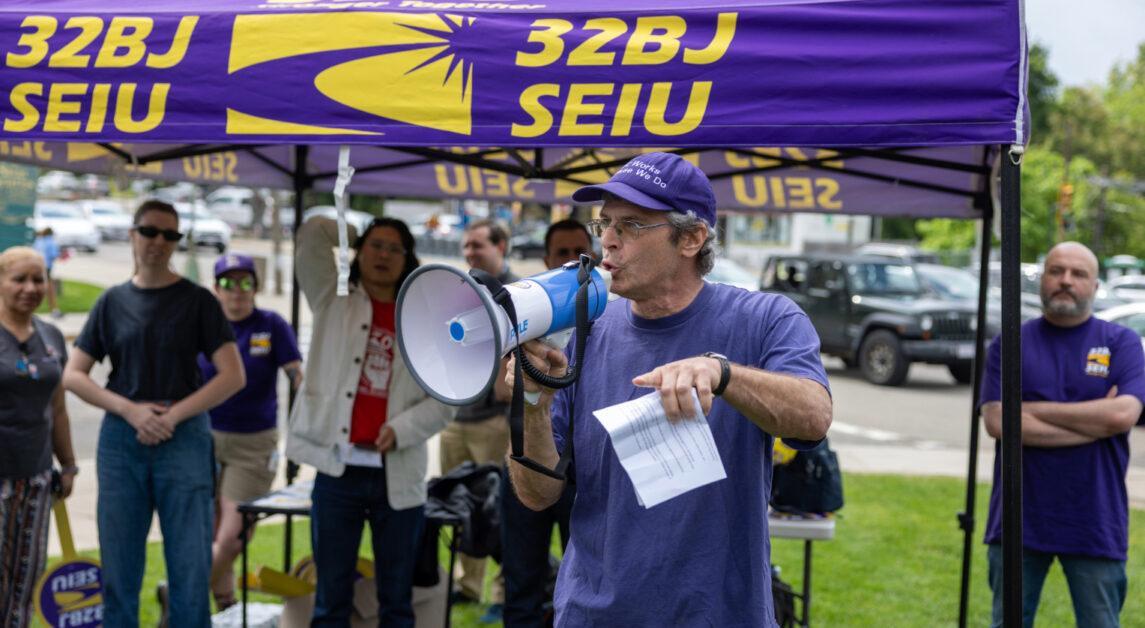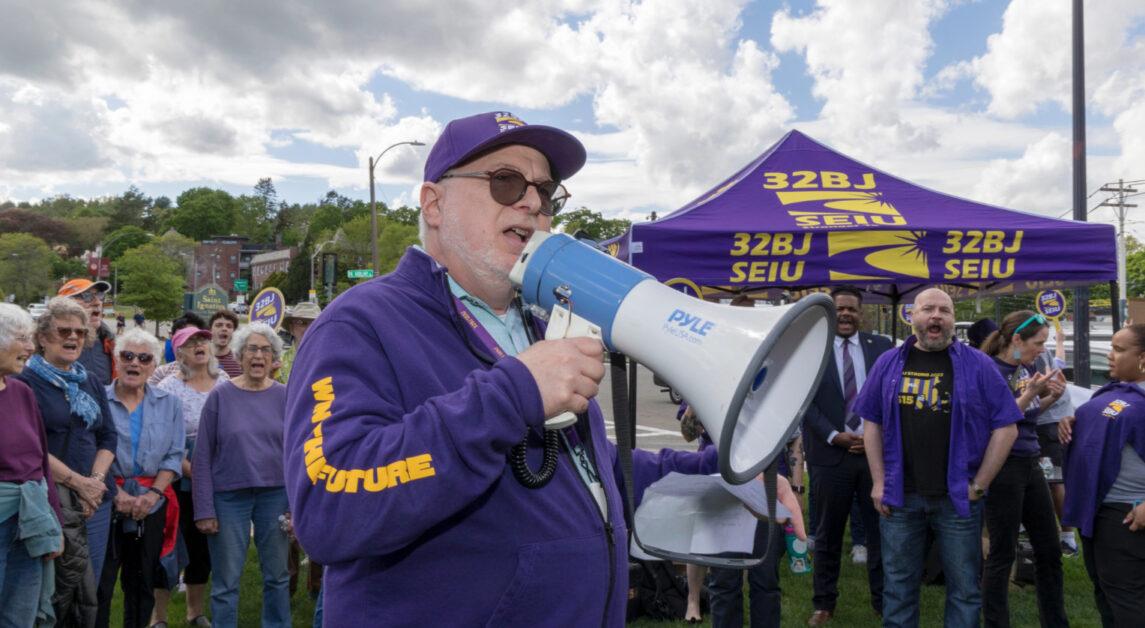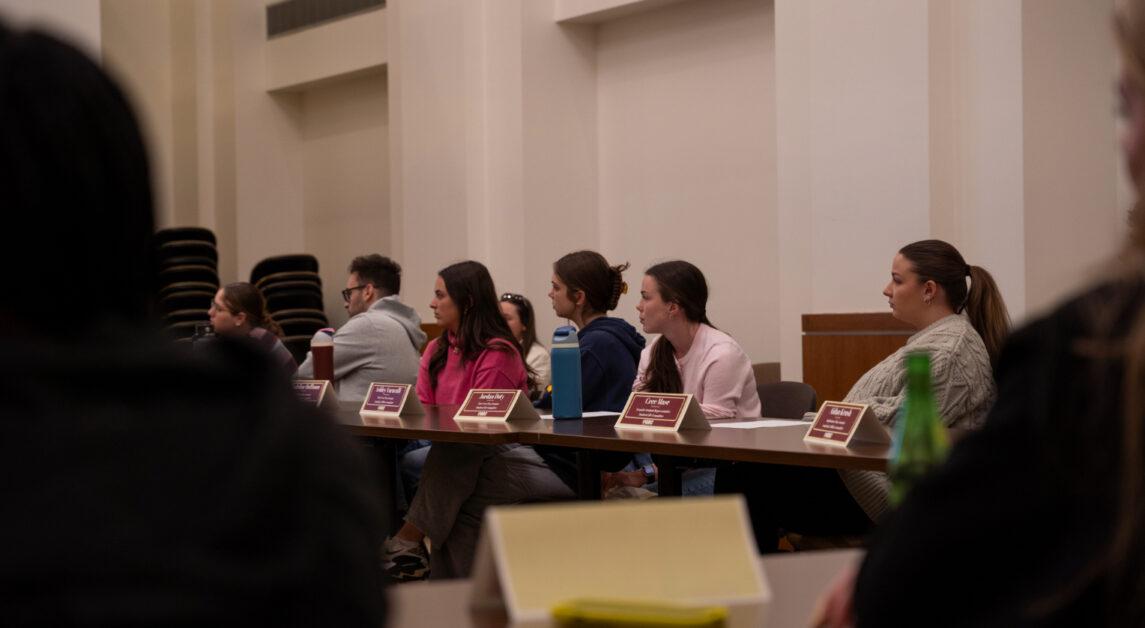The hosts opened the show with a discussion of resilience and the role it can play when confronting hardships, particularly in the context of the current COVID-19 pandemic and racial discrimination in the United States.
This week’s guests, Mark Herzlich, BC ’10, and Danielle Herzlich, BC ’11, who are married, said that their individual experiences of hardship and adversity taught them a resilience that they strive to share with both the BC community and their own.
After graduating from BC, Danielle Herzlich served as adjutant general corp officer in the United States Army in 2011 and served for 10 years as a Captain in the New Jersey National Guard. She grew up in Boston in a family where she experienced domestic abuse from a parent daily. Looking back on her childhood, she credits the resilience she developed to her mother, who always tried to compensate for the abuse her children were enduring.
“From a very young age [my mother] said to us … ‘We might not have it all, we might not be in the best situation possible, but that doesn’t mean that like we’re taken out of the fight,’” she said.
Mark Herzlich played BC football from 2006 to 2010, despite being diagnosed with and undergoing treatment for Erwing’s sarcoma, a rare bone cancer, in May of his junior year. At the time of his diagnosis, his doctors expected him to never walk again, let alone return to the football team. Despite all odds, Herzlich returned to BC football for his senior year, and he later went on to play in the NFL for the New York Giants.
During his recovery, Mark Herzlich explained, he learned that there are three principal forms of adversity: self-inflicted adversity, caused by one’s mistakes or choices; adversity inflicted by others; and adversity that has no apparent cause.
He then paralleled his experience with cancer to the struggle against COVID-19, an adversity that has also proven unpredictable, devastating, and lacking in a clear explanation. In order to become resilient in the face of such hardship, Herzlich said, it is vital to resist the temptation to endlessly search for someone or something to blame, and instead divert one’s energy toward moving forward.
“It’s really identifying the fact that, ‘Okay. I don’t necessarily know why this is happening to me,’” he said. “But the question is, ‘Okay, what now?’”
The conversation then transitioned to a discussion of the common good, the central theme of the webinar series. Williams asked the couple how they have managed to use their resilience for service and for the common good of others in the current climate of civil unrest surrounding societal racism and violence.
Mark said that before his cancer diagnosis, he was not outspoken about social issues. After his recovery, however, he recognized the importance of using his voice when he was invited to speak about his experience to fellow students at an Agape Latte event on campus.
“It was like the first time I was given a microphone and [told], ‘You have something to say,’” he said.
Williams then directed the question to Danielle, asking how her mother’s selflessness impacted her own values and advocacy for others, as well as the role BC played.
She said that her involvement with ROTC and BC’s focus on faith and service built upon the foundation her mother established for her as a role model. But it was through the sharing of her own experiences, she explained, that she learned the significance of one of her most important values: empathy.
“The biggest thing that I want to instill in my son is the gift of empathy, and I really believe that it’s a gift, but it’s something that you have to work on and actively help someone through, especially a 2-year-old,” she said. “We don’t have enough empathy in this world.”
She ended the webinar by stressing the importance of sharing stories, especially those of resilience, with others.
“I just think the power of sharing your story is so important and … really sitting down and understanding where someone came from … and really just validating their experience,” she said.
Featured Image by Maggie DiPatri / Heights Editor







